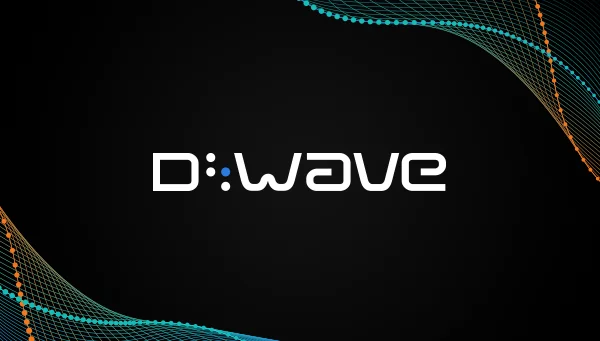Insider Brief
- Rigetti posted a $42.6 million net profit in Q1 2025, driven by one-time non-cash gains, despite recording a $21.6 million operating loss as it invests in scaling quantum technology.
- The company generated just $1.5 million in revenue for the quarter while expanding government-backed research partnerships in the U.S. and U.K. focused on quantum error correction and chip fabrication.
- Recent technical milestones include optical control of superconducting qubits and a quantum optimization algorithm that showed utility on a real-world power grid problem using Rigetti’s 84-qubit processor.
Rigetti Computing reported a net profit of $42.6 million in the first quarter of 2025, driven mainly by non-cash gains tied to financial instruments, but revealed a $21.6 million operating loss as the company ramps up development of utility-scale quantum systems.
According to the company’s earnings statement released this week, Rigetti generated $1.5 million in revenue for the three-month period ending March 31, largely unchanged from prior quarters and underscoring its early-stage position in the commercial quantum computing market. Meanwhile, total operating expenses ballooned to $22.1 million, reflecting ongoing R&D efforts and expansion activities.
The reported net income was primarily attributed to a $62.1 million non-cash gain from the revaluation of derivative warrant and earn-out liabilities. These gains are tied to changes in the company’s stock price and do not reflect core business performance.

Despite the persistent operational losses, Rigetti ended the quarter with $209.1 million in cash and liquid investments. By the end of April, that figure rose to $237.7 million, following the completion of a $35 million equity investment by Taiwan-based Quanta Computer. Quanta paid approximately $11.59 per share under a strategic partnership agreement.
In an interview with financial outlet Asking For A Trend, Rigetti CEO Subodh Kulkarni said these “lumpy” results — gyrations in sales and earnings numbers — would be typical for the company, which is still heavily focused on promoting technical advances and absorbing research and development costs. However, he expects commercial value — and steadier financial growth — to arrive within years.
“We are four to five years from real commercial value of quantum computing,” Kulkarni told Asking For A Trend. “That’s where the market is really supposed to grow and be large enough where things like sales and EPS start becoming much more critical at that point. At this point, it’s all about technology development and how we are getting the milestones done so that we enable this large $100 plus billion market in the future.”
DARPA, Defense Funding Fuel Momentum
Rigetti’s earnings report came alongside a series of government-backed project wins and technical milestones that hint at long-term potential, the statement points out. The company advanced to Stage A of the Defense Advanced Research Projects Agency’s (DARPA) Quantum Benchmarking Initiative. This early-phase contract, worth up to $1 million, will evaluate Rigetti’s approach to building utility-scale quantum computers—machines powerful enough to outperform conventional systems on real-world problems.
Rigetti’s concept combines its proprietary multi-chip processor design with quantum error correction, or QEC, which compensates for the fragile nature of quantum bits (qubits). British partner Riverlane, a specialist in error correction stacks, will assist with validation and refinement.
Separately, the Air Force Office of Scientific Research (AFOSR) awarded Rigetti leadership of a $5.48 million research consortium to investigate its Alternating-Bias Assisted Annealing (ABAA) chip fabrication technique. The initiative, backed by several universities and a U.S. Department of Energy lab, aims to explore microscopic defects in superconducting qubits and reduce sources of noise that degrade computation.
“Rigetti is proud to be awarded important government-funded projects in the U.S. and U.K. to advance our technology, which demonstrates our continued leadership in superconducting quantum computing,” Kulkarni said in a statement. “We also are making great strides in developing innovative approaches to scaling to higher qubit count systems, which is possible due to our open and modular system architecture, in-house full-stack expertise, and world-class partners.”
UK Grants to Expand Qubit Count and Test Error Correction
Rigetti also won three grants under the UK’s Quantum Missions program. The largest, a £3.5 million award, will support collaboration with Riverlane and the UK’s National Quantum Computing Centre (NQCC) to demonstrate real-time quantum error correction—an essential capability for achieving fault-tolerant quantum systems.
As part of the project, Rigetti will upgrade the quantum computer it hosts at the NQCC, scaling up from a 24-qubit chip to a 36-qubit model and integrating its next-generation control system for better performance.
Two other UK awards support partnerships with SEEQC and a separate consortium of TreQ, Qruise, Q-CTRL, and Oxford Ionics. These projects focus on developing open-architecture quantum platforms and hybrid integration techniques—early steps toward a more interoperable ecosystem.
Technical Progress on Scaling and Optimization
Beyond grants, Rigetti highlighted two recent technical milestones. First, a collaboration with researchers at Harvard, MIT and the University of Chicago demonstrated optical control of superconducting qubits, a potential advance toward scaling quantum systems. The findings, published in Nature Physics, suggest that replacing bulky microwave lines with optical signals could help reduce the heat load and wiring complexity in large-scale machines.
Second, the company tested a new quantum optimization algorithm called “quantum preconditioning” using its 84-qubit Ankaa-3 processor. The method was applied to a dataset from South Carolina’s power grid, producing results that improved classical solver performance on a key energy optimization task. According to the report, the outcome showed measurable utility for hybrid quantum-classical systems on real-world problems.
Outlook: Research-Heavy, Revenue-Light
Overall, Rigetti’s financials reflect a familiar pattern in deep-tech sectors — low revenue, high spending and speculative gains from financial revaluation. The gap between its operating loss and its one-time accounting profit highlights the early-stage risk and long runway still ahead.
While the company’s quarterly revenues remain modest, its growing portfolio of government partnerships, technical collaborations and international grants points to a long-term strategy focused on quantum utility and fault-tolerance. Sales are not at the center of the bullseye just yet for the company, officials indicate.
“The technology milestones and how we are accomplishing them and the timeline for that is far more critical than sales at this point of the journey,” Kulkarni told Asking For A Trend.















